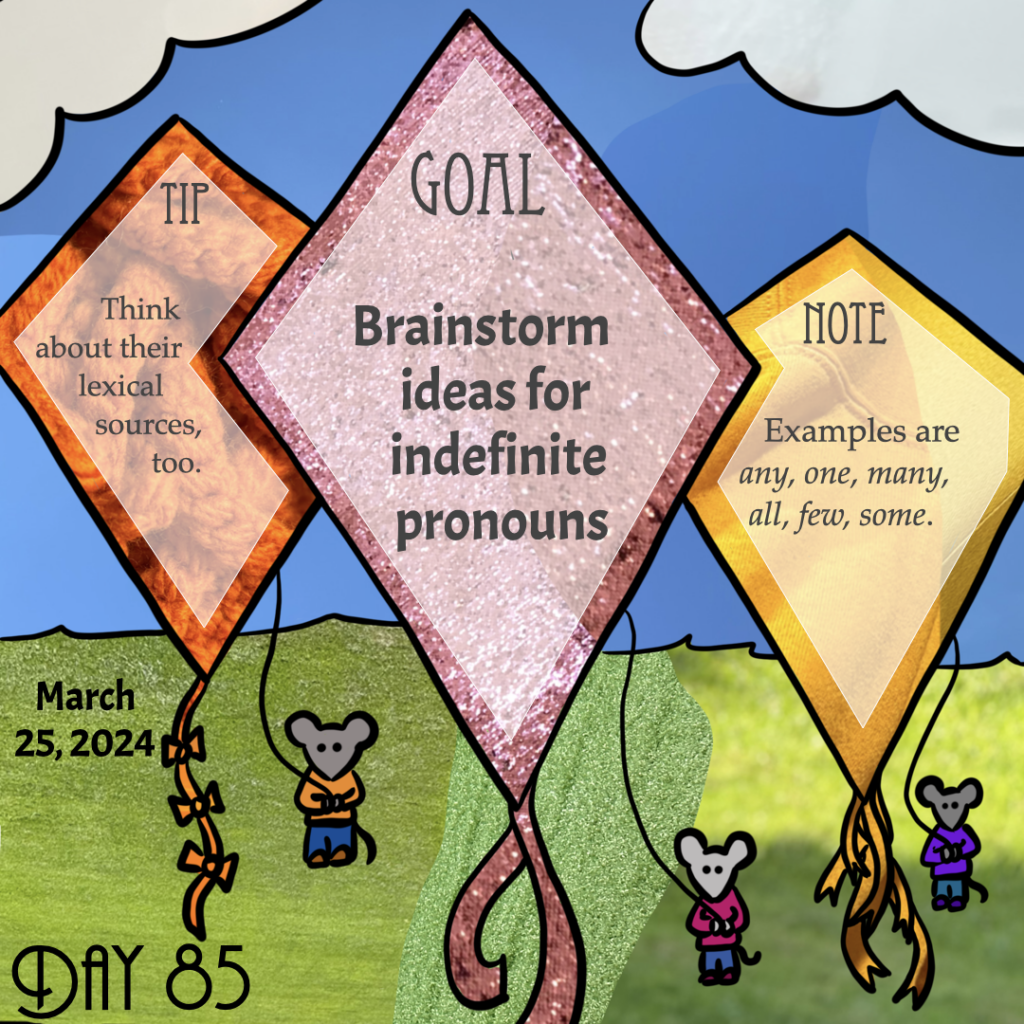
Goal: Brainstorm ideas for indefinite pronouns
Note: Examples are any, one, many, all, few, some.
Tip: Think about their lexical sources, too.
Work focus: Learn/Brainstorm/Try
In the coming week, you will be prompted to create a series of indefinite pronouns. Examples of these kinds of pronouns are any, one, many, all, few, and some. In English the modifier and pronoun forms of these words are identical. Consider the following examples:
- Many books are on sale today. / Many are on sale today.
- All butterflies have wings. / All have wings.
- Some students are in the hallway. / Some are in the hallway.
In each set, the first sentence features the italicized word being used as a modifier for a head noun, and the second features the word being used as a pronoun. You can choose to create indefinite pronouns that, like English, share the form the words take as modifiers.
However, you can also explore options for making the forms different. Even if the modifiers and pronouns are based on the same lexical sources, you could choose to make the forms slightly different (especially if modifiers occur with inflections differently than the pronoun forms do).
Along with thinking about the forms of the pronouns, consider what lexical sources you might want to use for these pronouns/modifiers. During the next three days, prompts will focus on creating forms that indicate single entities (e.g. one, any), plural entities (e.g. many, some, all), and the absence of entities (e.g. none).
